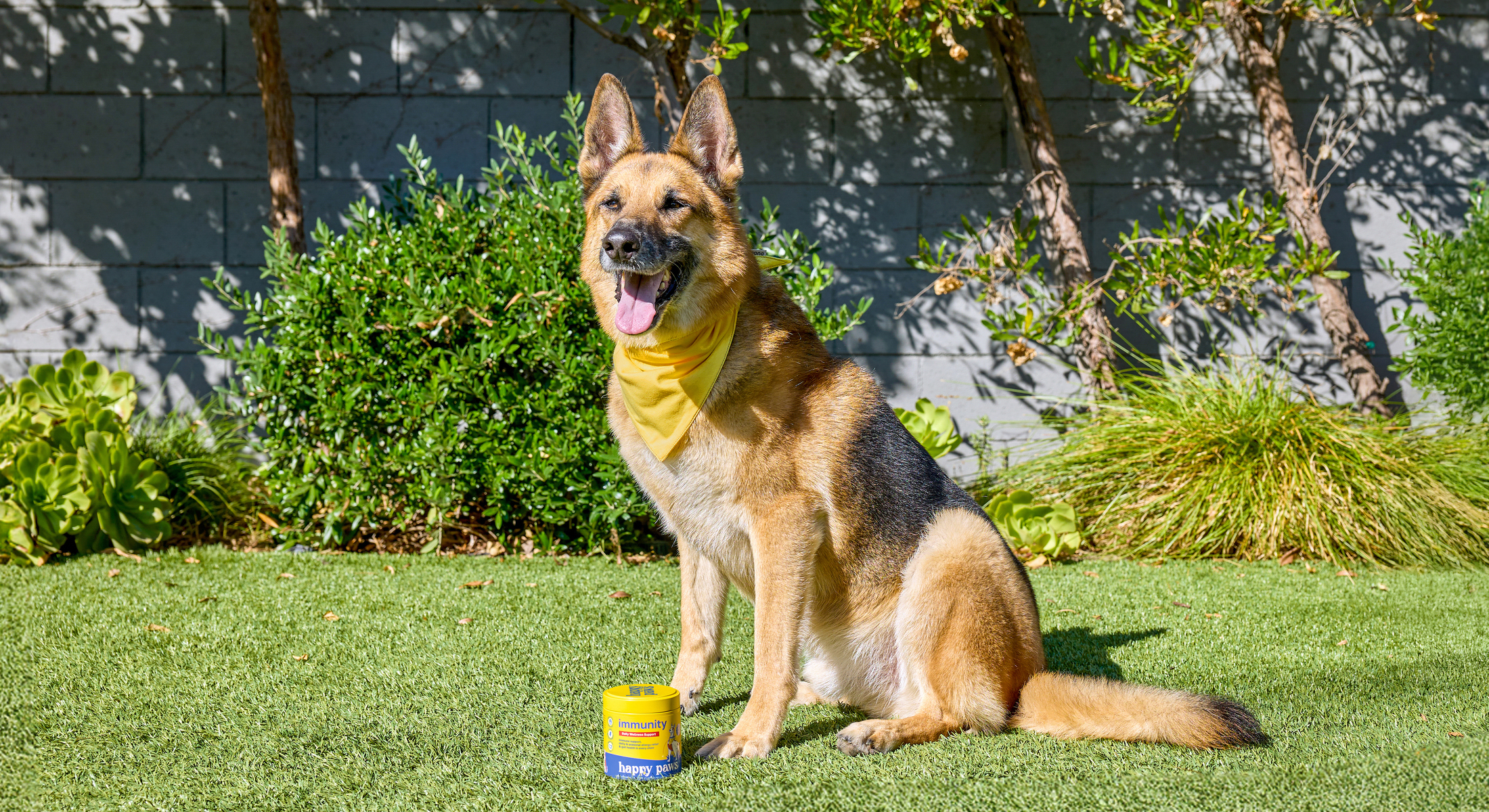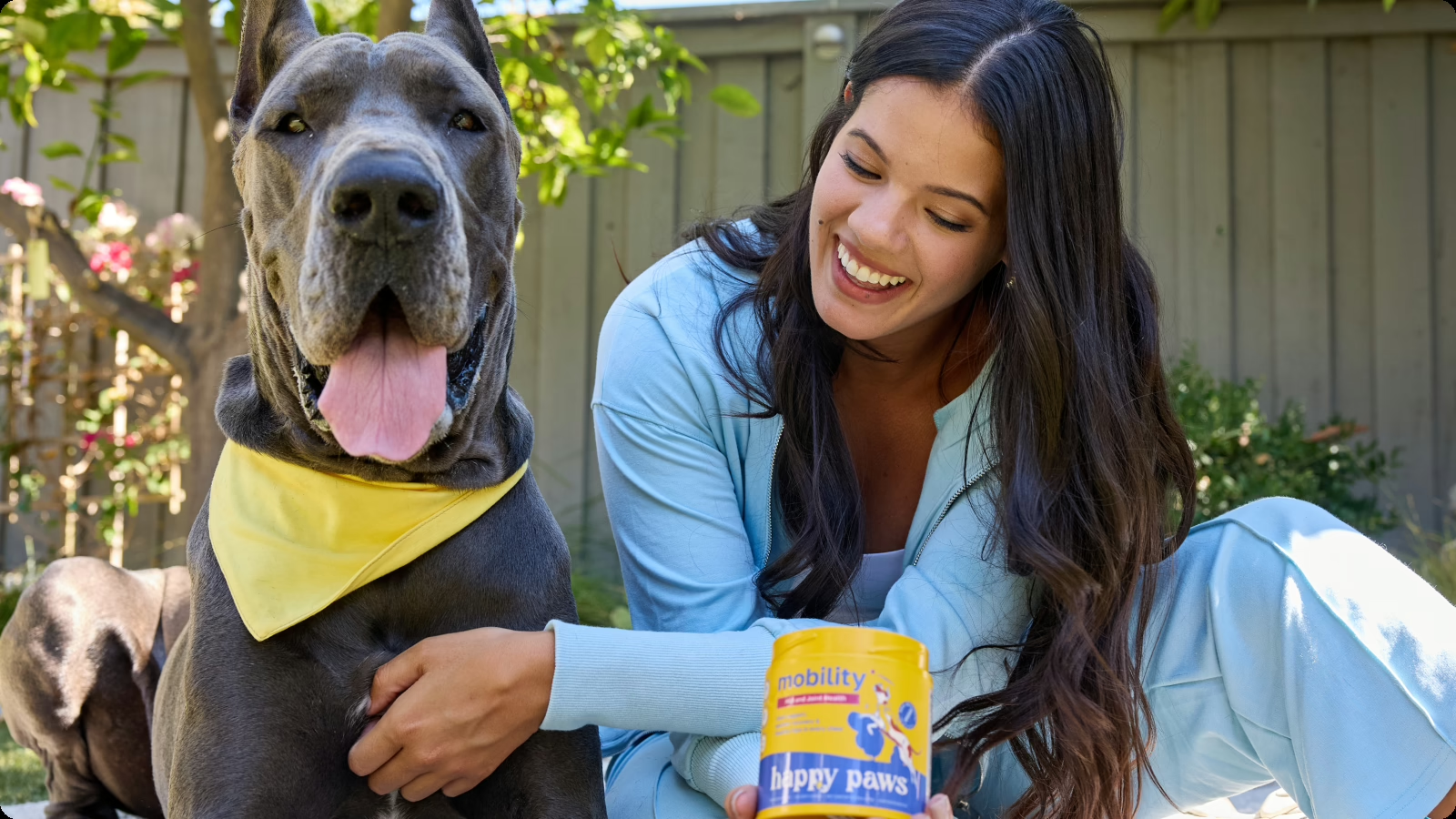As a practicing veterinarian, hardly a day goes by that I don’t deal with the effects of allergies in my canine patients. Itching, licking, scratching, and a host of skin and ear infections seem to inevitably plague a portion of the dogs I see. I find that many owners aren’t prepared for the cost and work involved with managing the effects of allergies in their pets.
I often feel a familiar drop in my gut as I try to explain the importance of managing this condition—and doing so early in the game. Most owners nod, but I find it’s hard to communicate the urgency when the first signs might just be a bit of redness in the fur between the toes.
However, subtle clues can tell me a lot during a physical exam. That bit of fur wedged under your pet’s gums and sticking out along the teeth? I suspect chewing at the feet. The pink or red fur on the toes? That’s a discoloration from hemosiderin in the saliva: another sign your dog is licking a bit more than they should. And in my experience, the key is intervening early—and intervening holistically.
For my own dogs, that means supporting their skin health in several ways:
- Food storage: Did you know that some dogs are allergic to storage mites that can form in grain-containing kibble? I try to make sure my dogs’ food is stored to maximize freshness. If I suspect a storage mite allergy, I freeze their kibble and only thaw what they’ll eat that day.
- A daily probiotic: This is foundational. In my experience healthy skin starts with a healthy gut.
- Staying on top of prescription allergy medications: For my dogs, I would much rather prevent flares than to chase them after a relapse.
Over time, I’ve developed a holistic approach to allergies in my patients: one aimed at improving their skin quality (especially barrier function) and helping to reduce the need for allergy medications when possible. I’ve also become more and more aware of the gut-skin connection, and how there’s now scientific evidence that probiotics can help reduce the need for allergy medications. In fact, one study showed that administering a Lactobacillus strain of probiotic to dogs helped reduce their need for steroids in managing allergy signs (Ohshima-Terada et al.).
But holistic care isn’t always glamorous or fun, and I know it can be hard to stick to giving high-quality supplements daily. Still, in my experience it’s so important to give them enough time to help. A recent study highlighted the link between allergies and abnormal GI flora (dysbiosis), and they saw clinical changes after 16 weeks of probiotic supplementation (Song, H. et al.). That’s why, in my own dogs, I try to give a supplement regularly and consistently for at least a few months before I evaluate how it’s helping.
This is also why I make sure to discuss a quality skin support supplement for my canine patients suffering from allergies—and one like Happy Paws Skin and Coat Chews, which contains probiotics, is ideal in my opinion for my patients with allergies.
Of course, be sure to discuss any new supplements with your veterinarian to make sure it’s the right one for your pet. But from my experience, starting early—and sticking with it—can make all the difference.
Citations
Ohshima‐Terada, Yuri et al. Complementary Effect of Oral Administration of Lactobacillus Paracasei K71 on Canine Atopic Dermatitis. Veterinary Dermatology. 26.5 (2015): 350-e75.
Song, H., Mun, S.H., Han, D.W., et al. Probiotics Ameliorate Atopic Dermatitis by Modulating the Dysbiosis of the Gut Microbiota in Dogs. BMC Microbiology 25, 228 (2025). https://doi.org/10.1186/s12866-025-03924-6






